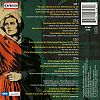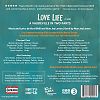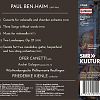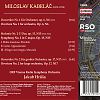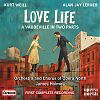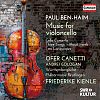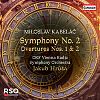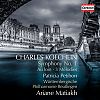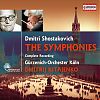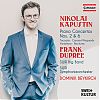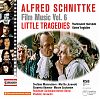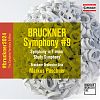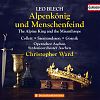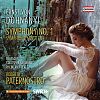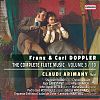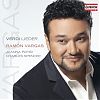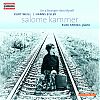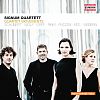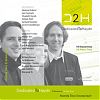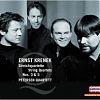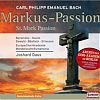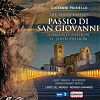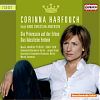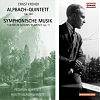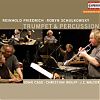cd

DMITRI SHOSTAKOVICH - Vocal Symphonic Music
WDR Rundfunkchor · WDR Sinfonieorchester MICHAIL JUROWSKI
Dmitri Shostakovich is known for his symphonies, his chamber music, maybe the popular Suites, and to some extent even his film. Largely unknown, however, is his vocal symphonic music, of which only the cycle on Jewish Folk Poetry, Op. 79, has gained some wider popularity. Here these hidden gems are brought together in authoritative interpretations under Michail Jurowski and the WDR Symphony Orchestra Cologne with its rich Shostakovich tradition under Semyon Bychkov and Rudolf Barshai, among others, from the Six Romances on words by Japanese poets to the Suite on Verses by Michelangelo Buonarroti.
Hörprobe
Weitere Bilder

Kurt Weill - Love Life (1948)
Quirijn de Lang · Stephanie Corley · Orchestra and Chorus of Opera North · James Holmes
As a concept musical, Love Life was a real trailblazer, inspiring musical theatre favourites of the 1960s, 70s and beyond from Cabaret and Chicago (originally subtitled ‘A Musical Vaudeville’) to Sondheim’s Company (told through a series of vignettes). It is “one of Weill’s best scores” (conductor Jim Holmes), a masterpiece of putting different musical styles together, “a compendium of American musical idioms, cunningly chosen so that they suit the dramatic material”. Kurt Weill and Alan Jay Lerner teamed up in 1947, both riding high on recent successes (Street Scene for Weill, Brigadoon for Lerner) and looking for new projects. When Love Life premiered on Broadway in 1948, Weill called it “an entirely new form of theatre.” Stephen Sondheim denoted it as “a useful influence on my own work.”
Hörprobe
Weitere Bilder

PAUL BEN-HAIM
Ofer Canetti · Andrei Gologan · Württembergische Philharmonie Reutlingen Friederike Kienle
Paul Ben-Haim ranks among those leading Israeli composers from his generation. Born Paul Frankenburger in Munich he studied composition with Friedrich Klose and served as an assistant conductor to both Bruno Walter and Hans Knappertsbusch. His extensive catalogue comprises works in all the primary genres apart from opera. Music for or with cello features prominently throughout Ben-Haim’s output. Following emigration, he increasingly advocated a specifically Jewish national expression while his own compositions favoured a late-Romantic vein redolent of – though by no means indebted (unlike other contemporaries) to – Ernest Bloch and frequently informed by Middle-Eastern overtones.
Hörprobe
Weitere Bilder

MILOSLAV KABELÁČ
ORF Vienna Radio Symphony Orchestra · Jakub Hrůša
Miloslav Kabeláč ranks among the most significant Czech composers of the 20th century. Alongside Antonín Dvořák and Bohuslav Martinů, he is recognized as one of the greatest Czech symphonists, and his work represents a cornerstone of Czech musical heritage. His work encompasses nearly all musical genres except opera, but at its core are eight symphonies, each with a unique orchestration. With the czech conductor Jakub Hrůša the ORF Radio Symphony Orchestra had a welcome expert for this recording, as he examines carefully
these rich orchestrated scores of this still underrated music and composer.
Youtube
Weitere Bilder

JULIAN WALDER - (R)-EVOLUTION
JULIAN WALDER, violin · ELIAS PRAXMARER, organ


